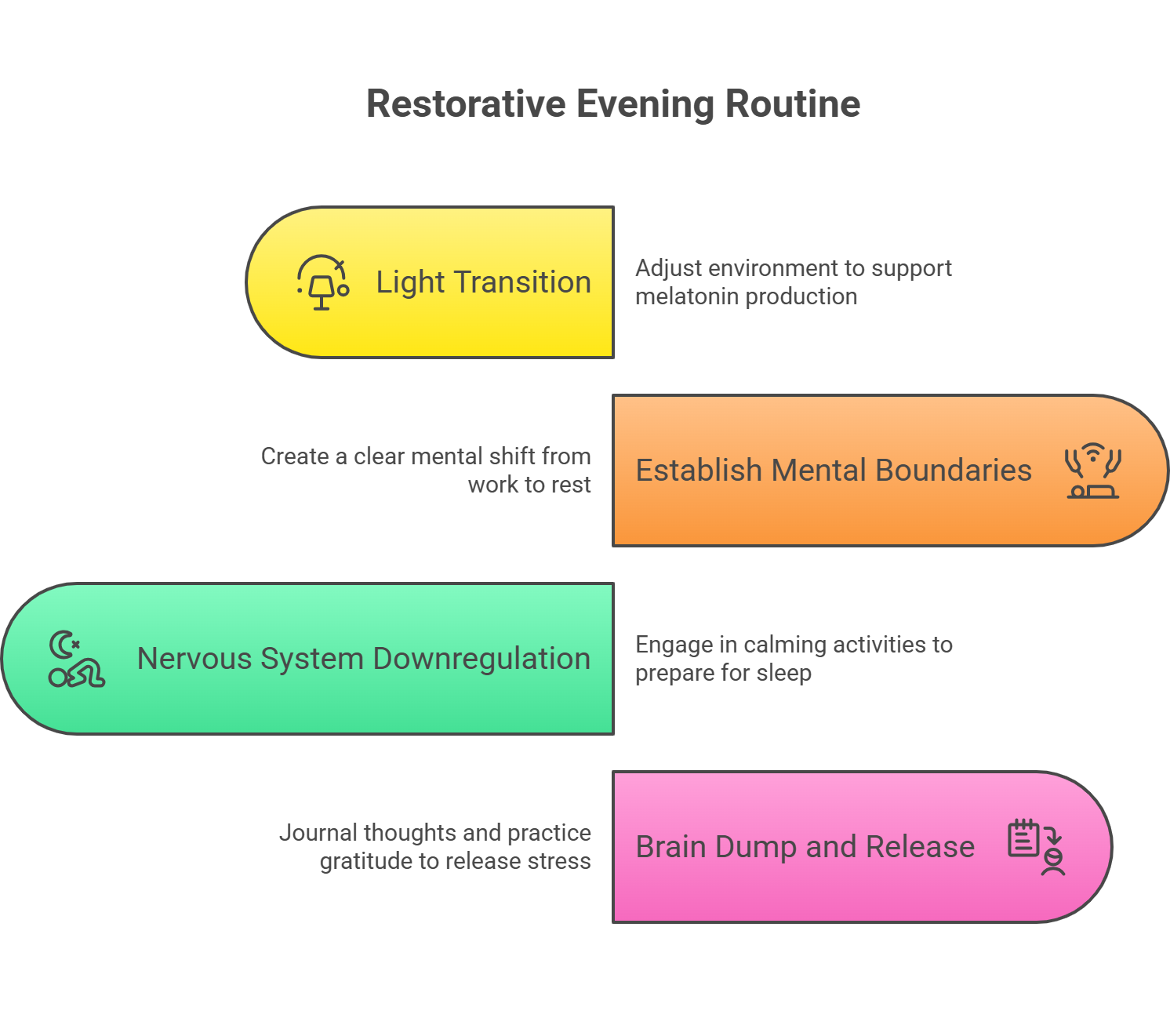
Understanding the Wired but Tired Paradox
Have you ever been so physically drained at the end of the day that you could fall asleep standing up, yet your mind races with thoughts about upcoming tasks or events? This is known as the wired but tired paradox, an issue affecting countless adults today. As we balance various responsibilities, it becomes increasingly important to understand how our daily habits impact our mental state, especially as night approaches.
In 'Evening Wind-Down Breakthrough: Simple Steps to Restore Your Mind', Dr. Tracey Marks emphasizes the significance of an evening routine, inspiring us to explore how it can shape our mental health.
The Importance of an Evening Routine
In her insightful video, "Evening Wind-Down Breakthrough: Simple Steps to Restore Your Mind," psychiatrist Dr. Tracey Marks discusses how optimizing our evening routines can significantly enhance mental health. Just as a good morning routine requires awareness of our natural brain chemistry, our evening habits need to support our mind's recovery.
The transition from day to night is not merely about time; it's about how we guide our brains to prepare for rest. Cortisol, a hormone responsible for keeping us alert during the day, naturally decreases in the evening as melatonin—commonly referred to as the sleep hormone—increases. This delicate balance is crucial for a good night's restorative sleep.
4 Pillars of a Restorative Evening Routine
Dr. Marks outlines four essential pillars for an effective evening routine:
1. Light Transition: Adjust your environment to support melatonin production by dimming lights two hours before bedtime. Consider using amber or red spectrum bulbs to promote relaxation.
2. Establish Mental Boundaries: Encourage a clear mental shift from work to rest by setting physical cues, such as changing clothes or closing your laptop, and establish a short shutdown ritual to mark the end of your workday.
3. Nervous System Downregulation: Focus on calming activities like breathwork or sensory experiences, including warm baths, to help your body prepare for sleep.
4. Brain Dump and Release: Journal your thoughts, reflect on the positive aspects of your day, and practice gratitude to let go of stress and prepare for tomorrow.

Building Mindfulness in Your Evening
Implementing these simple yet effective techniques can help cultivate an evening routine that not only promotes better sleep but increases overall resilience. If you're skeptical about finding time for an evening routine, remember that even a brief five-minute practice can be beneficial. As Dr. Marks points out, it's not about perfection—it's about progress.
Rest is Key to Daily Resilience
The importance of proper evening restoration cannot be overstated. A consistent and peaceful evening routine pays off by improving emotional regulation and focus throughout the following day. In a society that often equates busyness with success, practicing restorative habits can feel counterintuitive, but it's when we allow our minds to rest that we truly begin to thrive.
Embrace these evening practices as a strategic investment in your well-being, acknowledging that rest is not the opposite of productivity; instead, it’s a vital component.
As you embark on your journey to enhance your mental health, consider adopting even one of Dr. Marks' evening routine strategies. By being intentional with your nighttime habits, you’re paving the way for a healthier, more balanced life.
Take a moment tonight to reflect on how you could improve your evening routine. Dimming the lights or jotting down three positive occurrences from your day could very well lead to a more rejuvenating sleep. Here's to embracing the night and the renewal it brings!
 Add Row
Add Row  Add
Add 




 Add Row
Add Row  Add
Add 

Write A Comment